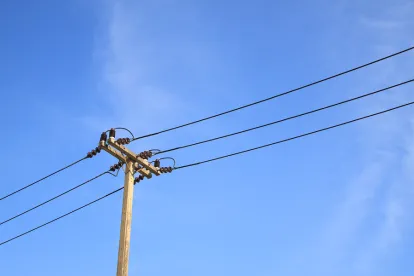911 Fee Integrity Act
FCC Commissioner O’Rielly released a statement last week commending the introduction of the 9-1-1 Fee Integrity Act by Representatives Collins, Eshoo, and Lance. The legislation seeks to prevent states from diverting fees collected from consumers on their phone bills, which are meant to improve 9-1-1 emergency communications systems. Approximately 41 percent of state 9-1-1 fees are diverted to non-public safety related purposes. The bill would direct the FCC, in consultation with public safety organizations and state and local governments, to determine the appropriate use of funds collected from consumers.
More Challenges to FCC Wireless Infrastructure Order
Four consolidated cases have now been filed in the D.C. Circuit challenging the FCC’s Order declaring that small-cell nodes do not constitute a “federal undertaking” or a “major federal action,” effectively eliminating review of small-cell node projects under the NHPA and NEPA (Vol. XV, Issue 28). The lead case was filed by the United Keetoowah Band of Cherokee Indians in Oklahoma, along with challenges by the Seminole Tribe of Florida, the Crow Creek Tribe of South Dakota, and the Omaha Tribe of Nebraska. The FCC asked the D.C. Circuit to hold the consolidated cases in abeyance until it addresses petitions for reconsideration.
Emergency Alert Legislation
U.S. Senators Schatz and Thune introduced the READI Act (Reliable Emergency Alert Distribution Improvement). In the wake of Hawaii’s false ballistic missile alert earlier this year, Sen. Schwartz previously introduced legislation (the ALERT Act) that would give the federal government the primary responsibility of alerting the public of a missile threat (Vol. VX, Issue 16). Among other things, the new bill seeks to ensure more people receive alerts by eliminating the option to opt out of receiving certain federal alerts on mobile phones, requiring active alerts issued by the President or FEMA to be repeated, encouraging states to review their systems, and including emergency alerts on streaming services such as Netflix and Spotify.
FirstNet Deployment Update
AT&T has now built more than 2,500 sites across the U.S. for FirstNet, with another 10,000 sites planned for deployment. Under its contract with FirstNet, AT&T must have 20 percent of rural and non-rural areas covered by March 2019. By March 2020, AT&T must provide 60 percent coverage. As of late June, FirstNet announced that over 1,000 public safety agencies across 52 states and territories had joined FirstNet.
5G and Model Agreements
KH Counsel Al Catalano published a blog article last week discussing the deployment of 5G small cells and the impact they have on municipalities. Mr. Catalano discussed the work of the Broadband Deployment Advisory Committee (BDAC), municipality-friendly small cell agreements in San Jose, and existing state laws which constrain municipal discretion over deployments in public right-of-way.







 />i
/>i

